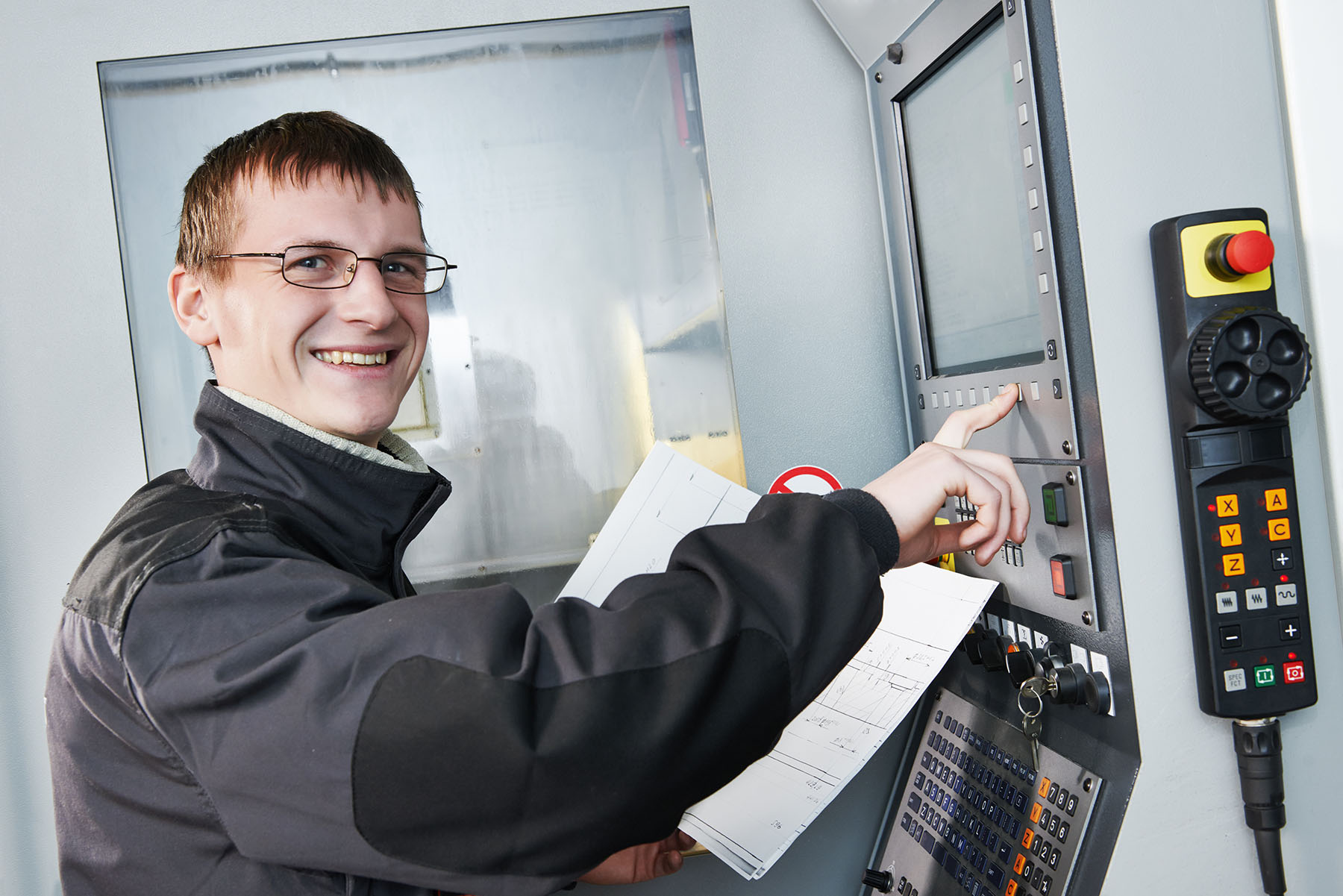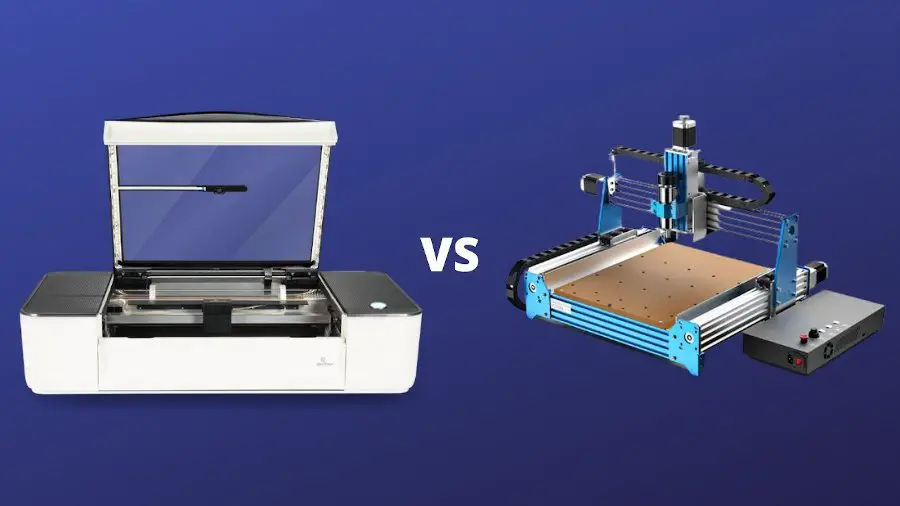Table of Contents
Paragraph 1:
For any manufacturing or production process, CNC machines play a vital role. But as with any machine, regular maintenance is essential to ensure optimal performance and longevity. Whether you’re a seasoned CNC operator or a novice, learning how to maintain your CNC machine is crucial to avoid costly downtime and repairs.
Paragraph 2:
In this article, we’ll cover the basics of maintaining your CNC machine, from daily checks to periodic maintenance tasks. You’ll learn how to keep your machine clean and lubricated, how to check and replace worn parts, and how to troubleshoot common issues. By following these maintenance tips, you can ensure your CNC machine runs smoothly and efficiently, minimizing downtime and maximizing productivity.
How to Maintenance CNC Machine?
To maintain a CNC machine, follow these steps:
- Check the hydraulic pressure, coolant level, and air pressure daily.
- Inspect the spindle for any wear and tear regularly.
- Clean the machine after every use to prevent debris buildup.
- Check the accuracy of the machine by running test cuts.
- Follow the manufacturer’s maintenance schedule for oil changes and other routine maintenance.
How to Maintenance CNC Machine?
CNC machines, also known as Computer Numerical Control machines, have revolutionized the manufacturing industry. These machines are automated and precise, making them ideal for producing complex parts and components. However, like any other machine, CNC machines also require maintenance to ensure they operate smoothly and efficiently. In this article, we will discuss how to maintain a CNC machine to keep it in good condition and increase its lifespan.
Regular Cleaning and Lubrication
Cleaning and lubrication are essential for keeping a CNC machine in good condition. Regular cleaning can prevent dust, debris, and other contaminants from accumulating on the machine’s surfaces and components. To clean a CNC machine, use a soft cloth or brush, and avoid using abrasive materials that could scratch or damage the machine’s parts.
Lubrication is also crucial for a CNC machine’s smooth operation. The machine’s moving parts require lubrication to reduce friction and prevent wear and tear. Make sure to use the right type of lubricant recommended by the machine’s manufacturer. Over-lubrication can also cause problems, so be careful not to apply too much lubricant.
Inspecting and Replacing Worn Parts
Regular inspection and replacement of worn parts are essential for maintaining a CNC machine’s efficiency and accuracy. Over time, the machine’s components, such as bearings, belts, and cutting tools, can wear out and affect its performance. Inspect the machine’s parts regularly, and replace any worn or damaged parts promptly.
Replacing worn parts can also improve the machine’s performance and reduce the risk of breakdowns. When replacing parts, make sure to use high-quality components recommended by the machine’s manufacturer.
Calibration and Alignment
Calibration and alignment are critical for a CNC machine’s accuracy and precision. The machine’s cutting tools and components should be properly calibrated and aligned to ensure they operate within the specified tolerances. Improper calibration and alignment can result in poor quality parts and components.
Regular calibration and alignment can also prevent costly breakdowns and repairs. Follow the machine’s manufacturer’s guidelines for calibration and alignment, and make sure to use the right tools and equipment.
Proper Storage and Handling
Proper storage and handling are crucial for maintaining a CNC machine’s condition and preventing damage. When not in use, the machine should be stored in a clean, dry, and temperature-controlled environment. Avoid exposing the machine to extreme temperatures or humidity, as this can damage its components.
When handling the machine, use proper lifting and moving equipment to avoid dropping or damaging it. Follow the manufacturer’s guidelines for handling and transporting the machine.
Software Updates and Backups
CNC machines use software to control their operation and produce parts and components. It is essential to keep the machine’s software up to date to ensure it operates correctly and efficiently. Check for software updates regularly, and install them promptly.
Backing up the machine’s software and data is also crucial for preventing data loss and downtime. Make sure to back up the machine’s software and data regularly, and store the backups in a secure location.
Training and Education
Proper training and education are essential for maintaining a CNC machine’s condition and preventing damage. Make sure to train and educate the machine operators and maintenance personnel on the proper use, handling, and maintenance of the machine. This can prevent accidents, errors, and damage to the machine’s components.
Training and education can also improve the machine’s efficiency and uptime. Invest in training and education programs to ensure the machine’s personnel have the necessary knowledge and skills to operate and maintain the machine.
Benefits of CNC Machine Maintenance
Regular maintenance of a CNC machine can provide several benefits, including:
– Improved efficiency and productivity
– Reduced downtime and repairs
– Longer machine lifespan
– Improved accuracy and precision
– Improved safety and reliability
– Reduced operating costs
CNC Machine Maintenance Vs. Repair
Maintenance and repair are two different processes that are essential for keeping a CNC machine in good condition. Maintenance involves regular cleaning, lubrication, inspection, and calibration to prevent problems and improve the machine’s performance. Repair, on the other hand, involves fixing the machine’s components or parts that have already failed or broken.
Regular maintenance can prevent the need for costly repairs and improve the machine’s efficiency and uptime. Make sure to follow the manufacturer’s guidelines for maintenance and repair and address any problems promptly.
Conclusion
Maintaining a CNC machine is essential for ensuring its proper operation and long lifespan. Regular cleaning, lubrication, inspection, and calibration are necessary to keep the machine in good condition. Proper storage and handling, software updates and backups, and training and education are also crucial for maintaining the machine’s efficiency and uptime.
Investing in regular maintenance can provide several benefits, including improved efficiency, reduced downtime and repairs, longer machine lifespan, improved accuracy and precision, improved safety and reliability, and reduced operating costs. Follow the manufacturer’s guidelines for maintenance and repair and address any problems promptly to keep your CNC machine in top condition.
Frequently Asked Questions
Here are some commonly asked questions about how to maintain CNC machines:
What is CNC Machine Maintenance and Why is it Important?
CNC machine maintenance refers to the routine upkeep of CNC machines to ensure they continue to operate at optimal levels. It involves cleaning, lubricating, and inspecting the machine’s components to prevent breakdowns and extend its lifespan. CNC machine maintenance is important because it helps prevent costly downtime and repairs, ensures the accuracy of the machine’s output, and protects the safety of operators and other personnel.
Regular maintenance also helps identify potential problems before they become major issues, allowing for timely repairs and minimizing the risk of catastrophic equipment failures. By prioritizing maintenance, manufacturers can reduce costs, increase productivity, and improve the overall quality of their products.
What are the Best Practices for CNC Machine Maintenance?
There are several best practices that manufacturers can follow to ensure the proper maintenance of their CNC machines. These include:
1. Establishing a routine maintenance schedule: Manufacturers should establish a regular maintenance schedule and stick to it. This may involve daily, weekly, monthly, or annual maintenance tasks, depending on the machine’s usage and the manufacturer’s recommendations.
2. Cleaning and lubricating the machine: CNC machines should be cleaned and lubricated regularly to prevent the buildup of dirt and debris, which can cause the machine to malfunction. Manufacturers should use the recommended cleaning and lubrication products and follow the manufacturer’s instructions.
3. Inspecting the machine’s components: Manufacturers should regularly inspect the machine’s components, such as the spindle, tool holders, and bearings, to ensure they are functioning properly. Any worn or damaged parts should be replaced immediately.
4. Training operators on proper usage: Operators should be trained on the proper usage and maintenance of the CNC machine. This includes how to properly clean and lubricate the machine, as well as how to identify and report any potential issues.
What are the Common CNC Machine Maintenance Issues?
Despite following best practices, CNC machines can still experience maintenance issues. Some of the most common issues include:
1. Worn or damaged parts: Over time, the machine’s components can become worn or damaged, which can cause the machine to malfunction. This may include issues with the spindle, tool holders, bearings, or other components.
2. Electrical problems: Electrical problems, such as faulty wiring or blown fuses, can cause the machine to stop working or malfunction. This can be dangerous and should be addressed immediately.
3. Software issues: CNC machines rely on software to operate. If the software is outdated or malfunctioning, it can cause the machine to produce inaccurate or unusable output.
4. Operator error: Improper usage or maintenance by operators can cause the machine to malfunction or break down. This can be avoided through proper training and regular maintenance.
How Can I Extend the Lifespan of My CNC Machine?
To extend the lifespan of your CNC machine, it is important to follow best practices for maintenance and usage. This includes establishing a regular maintenance schedule, cleaning and lubricating the machine, inspecting the components, and training operators on proper usage and maintenance.
It is also important to invest in high-quality components and software, as well as to use the machine as intended. This means avoiding overuse or using the machine for tasks it is not designed for.
When Should I Call a Professional for CNC Machine Maintenance?
While routine maintenance can be performed by operators or maintenance personnel, there are times when it may be necessary to call a professional for CNC machine maintenance. This may include:
1. Major repairs: If the machine experiences a major breakdown or requires extensive repairs, it may be necessary to call a professional for assistance.
2. Upgrades or installations: If the machine requires upgrades or new installations, a professional can ensure the work is performed correctly and safely.
3. Calibration: If the machine is not producing accurate output, it may require calibration by a professional to ensure it is functioning properly.
It is important to choose a reputable and experienced professional for CNC machine maintenance to ensure the safety and longevity of the machine.
In conclusion, maintaining a CNC machine is essential in prolonging its lifespan and ensuring its optimal performance. By following the steps outlined in this guide, you can easily perform routine maintenance tasks that will keep your machine running smoothly.
Remember to inspect your machine regularly, clean it thoroughly, and lubricate all moving parts. Don’t forget to keep a record of all maintenance tasks performed and schedule regular professional inspections.
By taking care of your CNC machine, you can avoid costly repairs and downtime, while also improving the quality of your work. So, take the time to maintain your machine regularly, and it will reward you with years of reliable service.
Request a quote today!
[contact-form-7 id="1578" title="Contact form"]
Please compress the file into a ZIP or RAR file before uploading. Alternatively, send through your RFQ by email.
enquires@unitymanufacture.com





